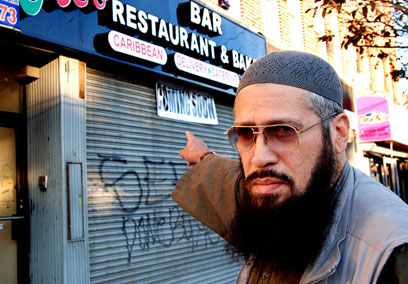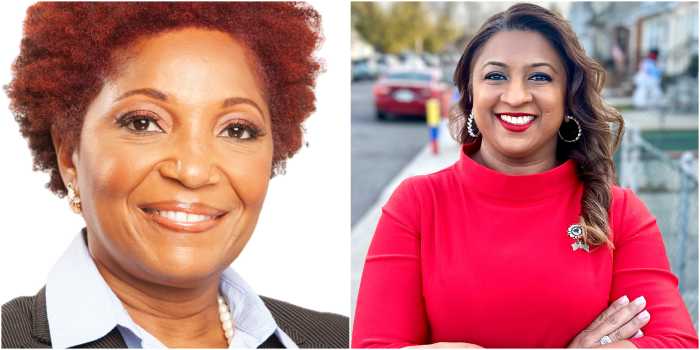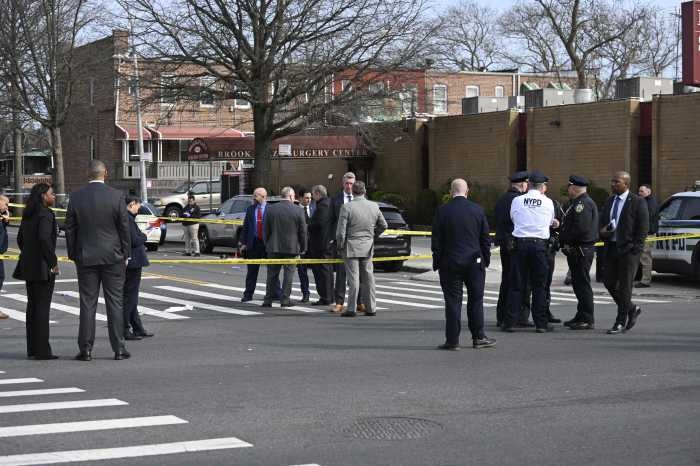Protests from a Flatbush Avenue mosque led the local community board to reject an application by a new restaurant next door for a license to serve beer and wine on Sept 20.
Community Board 18 threw a wrench into plans to open a Caribbean eatery in Flatlands, citing the law forbidding the sale of liquor within 200-feet of a place of worship — despite the fact that the law allows the sale of other forms of alcohol, according to an attorney representing the restaurant owners.
“They were definitely confused about the law,” said Tom McCallen, who represents Tasso Bar and Restaurant owners Kenny Merveille and Carnot Guerrier.
Following a brief address by McCallen at Thursday’s board meeting, Muhammad Bhuiya, Imam at the Tri-State Islamic Center located between Hubbard Place and Avenue K, stepped up to the mic and claimed that the sale of any alcoholic beverages near a place of worship is against the law.
McCallen asked for a chance to respond, but since he had already spoken, the board at first resisted, with CB18 chairman Saul Needle saying, “You have a right to speak, just like we have the right not to listen.”
But the lawyer persisted in making his rebuttal, insisting that the “200-foot rule” applies only to hard liquor, and that selling beer and wine near a religious institution is perfectly legal.
The State Liquor Authority actually backs up McCallen’s interpretation that only full liquor licenses are subject to the 200-foot rule, according to an authority spokesman, but CB18 and the many members of the Tri-State Islamic Center who attended the board meeting would not be moved.
One congregant insisted that even if the law wasn’t on their side, it shouldn’t matter.
“We know people in America. They legalize sodomy, prostitution, and they legalize alcohol, but that does not make these things right,” said Salah Uddin Laboy. “Our basis is moral and religious.”
The moral outrage took the prospective restaurant’s owners by surprise. They said they met with the imam before they firmed up their plans, and that Bhuiya’s seemingly warm reception was part of the reason the two partners ended up deciding on that location.
“I said there weren’t going to be people outside, hanging out and drinking, and he said there’s no problem,” said Merveille. “That’s why we signed the lease.”
So it came as a shock to Merveille and Guerrier when they arrived at the Thursday’s community board meeting and were confronted by more than a dozen mosque memebers who showed up to protest their application to serve alcohol.
“I was very surprised,” said Merveille. “It’s a big blow for my partner and I.”
Bhuiya didn’t deny that he’d had a pleasant conversation with the restaurateurs, disputed Merveille’s claim that they had spoken before he signed the lease, insisting that work had already begun at the property well before their meeting.
Community board votes are only advisory, and the decision to approve or disapprove the application ultimately rests with the State Liquor Authority. But the board’s rejection means the restaurant owners will now likely have to wait an additional two or three months for the state authority to make its decision, according to McCallen.
“The board’s decision to disapprove will add a minimum of 60–90 days to the procedure,” he said. “Meanwhile they’ll be paying rent.”
Even so, the Tasso Bar and Restaurant owners are content — if not particularly pleased — to open their eatery without the “Bar” part in effect for now.
“We’re not pulling out, but we’ll probably have to open without beer and wine,” said Merveille. “I don’t want to create any problems in the community.”























